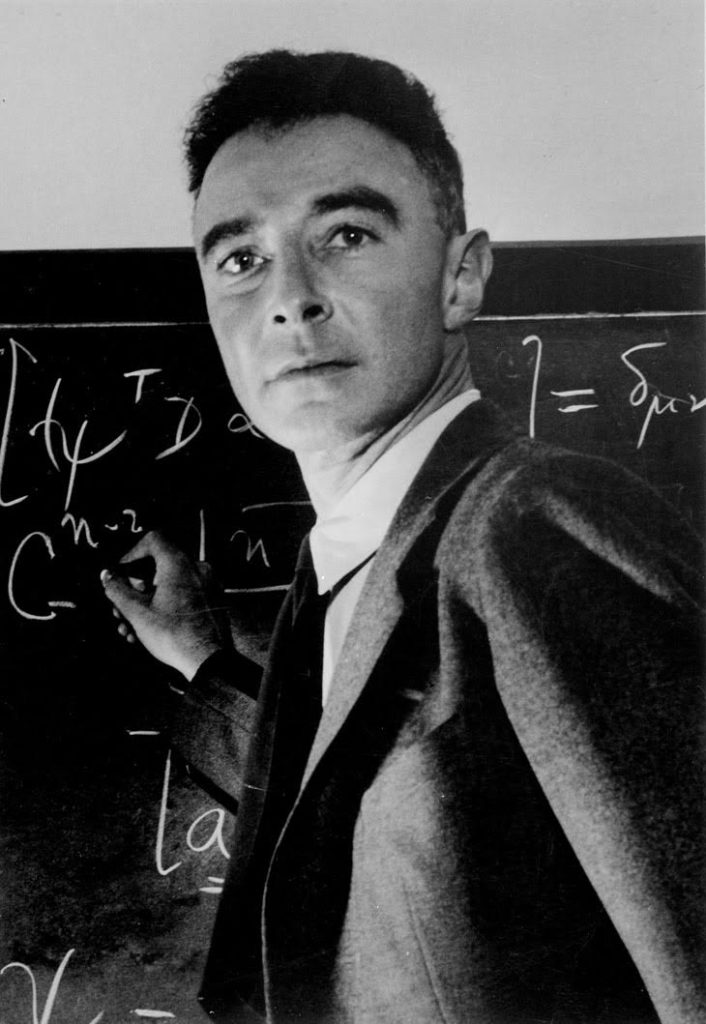
J. Robert Oppenheimer, an American theoretical physicist, is known by many as the “father of the atomic bomb.” Oppenheimer, born in 1904, was incredibly bright throughout his life. He lectured at the New York Mineralogical Club when he was 12 years old, and he later earned a degree in chemistry from Harvard within three years. He received his doctorate in Germany in 1927, and worked as a well-known physicist for several years in the United States before being asked to be a lead physicist in the Manhattan Project in 1942.
The Army gave him a budget of $2 million as head of the Los Alamos Laboratory in the hopes that he and his team would develop an atomic weapon before Germany, which, as we know, was a success. He met some challenges along the way, but he proved to be a great leader in addition to a brilliant scientist, and his team worked together to overcome any difficulties that arose to succeed in building the first atomic bomb. He is quoted as saying, “There must be no barriers to freedom of inquiry… There is no place for dogma in science. The scientist is free, and must be free to ask any question, to doubt any assertion, to seek for any evidence, to correct any errors. Our political life is also predicated on openness. We know that the only way to avoid error is to detect it and the only way to detect it is to be free to inquire. And we know that as long as men are free to ask what they must, free to say what they think, free to think what they will, freedom can never be lost, and science can never regress.”
Though Oppenheimer was not a devout Hindu, he had an appreciation for Hinduism and the philosophy behind it. He quoted the Bhagavad-Gita, a Hindu scripture, as he watched the effects of the detonation of his creation in 1945. He famously said, “Now I am become Death, the destroyer of worlds.”
One of the themes of the Bhagavad-Gita is the dharma, or holy duty, which is a practice that helped Oppenheimer rationalize his work on the project. He is speculated to have found some inspiration in the idea of fighting for a higher purpose, which in the case of building the atomic bomb, was to stop the forces of fascism.
“When we deny the evil within ourselves, we dehumanize ourselves, and we deprive ourselves not only of our own destiny but of any possibility of dealing with the evil of others.” – J. Robert Oppenheimer